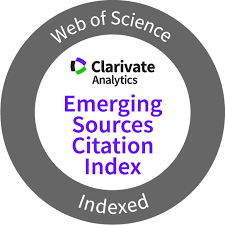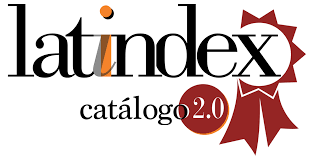Acceso de los grupos de interés al proceso de formulación de políticas en la UE basado en portfolios
DOI:
https://doi.org/10.5783/revrrpp.v14i28.879Palabras clave:
lobbing, grupos de interés, Unión Europea, formulación de políticas, gobernanza, relaciones con los públicosResumen
La Unión Europea enfatiza la transparencia y la rendición de cuentas como pilares fundamentales de la democracia, y el Registro de Transparencia de la Unión Europea es un claro ejemplo de los esfuerzos realizados en este sentido. Estos principios son cruciales para prevenir la corrupción, fomentar la participación ciudadana y garantizar una toma de decisiones eficaz, elementos esenciales para mantener la confianza pública en las instituciones de la UE. Este estudio explora los patrones de reuniones entre la Comisión Europea y los grupos de interés registrados, buscando establecer una relación entre la naturaleza económica o social de las carteras y los intereses representados por las entidades con las que se reúnen. Se formula la hipótesis de una correlación entre la naturaleza económica de las carteras de los funcionarios de la Comisión y su frecuencia de reuniones con grupos de interés que defienden intereses materiales. Por el contrario, se espera que los funcionarios que supervisan carteras sociales se reúnan con mayor frecuencia con organizaciones que abogan por intereses inmateriales. Empleando un enfoque analítico-descriptivo longitudinal, este estudio analiza 24,587 reuniones registradas desde noviembre de 2014 hasta octubre de 2023, abarcando dos legislaturas de la Unión Europea. Los resultados revelan que los funcionarios de la Comisión Europea, independientemente del tipo de cartera, se reúnen predominantemente con grupos que representan intereses materiales, lo que contradice la expectativa de que las carteras sociales se involucren más con grupos inmateriales. Esto subraya la fuerte influencia de los intereses económicos en las políticas de la UE.
Descargas
Citas
Almansa-Martínez, A., Moreno-Cabanillas, A., & Castillo-Esparcia, A. (2022). Political communication in Europe. The role of the lobby and its communication strategies. In Daniel Barredo Ibáñez, Laura M. Castro, Araceli Espinosa, Iván Puentes-Rivera & Paulo Carlos López-López (Eds.), International Conference on Communication and Applied Technologies (pp. 238-248). Springer. https://doi.org/10.1007/978-981-16-5792-4_24
Anastasiadis, S. (2014). Toward a view of citizenship and lobbying: Corporate engagement in the political process. Business Society, 53(2), 260-299. https://doi.org/10.1177/0007650313483495
Andersen, S. S., & Eliassen, K. A. (1995). EU lobbying: The new research agenda. European Journal of Political Research, 27(4), 427-441. https://doi.org/10.1111/j.1475-6765.1995.tb00478.x
Benson, D., & Jordan, A. (2015). Environmental policy: Protection and regulation. In James D. Wright (Ed.), International encyclopedia of the social & behavioral sciences (pp. 778-783). Elsevier. https://doi.org/10.1016/b978-0-08-097086-8.91014-6
Bernhagen, P., & Trani, B. (2012). Interest group mobilization and lobbying patterns in Britain: A newspaper analysis. Interest Groups & Advocacy, 1, 48-66. https://doi.org/10.1057/iga.2012.2
Bernhagen, P., Kollman, K., & Patsiurko, N. (2022). Beyond lobbying: The political determinants of adopting corporate social responsibility frameworks in the European Union and the USA. Interest Groups & Advocacy, 11(3), 373-398. https://doi.org/10.1057/s41309-022-00155-2
Bitonti, A. (2020). Where it all starts: Lobbying, democracy and the public interest. Journal of Public Affairs, 20(2), e2001. https://doi.org/10.1002/pa.2001
Bombardini, M., & Trebbi, F. (2020). Empirical models of lobbying. Annual Review of Economics, 12, 391-413. https://doi.org/10.1146/annurev-economics-082019-024350
Bouwen, P. (2002). Corporate lobbying in the European Union: the logic of access. Journal of European Public Policy, 9(3), 365-390. https://doi.org/10.1080/13501760210138796
Bratu, C. (2021). Lobby and transparency—Mutually inclusive for the greater good. A study on the Transparency Register of the European Union. Europolity, 15(1), 51-63.
Castillo-Esparcia, A. (2011). Lobby y comunicación: el lobbying como estrategia comunicativa. Comunicación Social.
Castillo-Esparcia, A. & Almansa-Martínez, A. (2011). Interacciones comunicativas entre lobbies, sistema político y medios de comunicación. Temas de Comunicación, 23, 67-87. https://doi.org/10.62876/tc.v0i23.675
Coen, D. (2007). Empirical and theoretical studies in EU lobbying. Journal of European Public Policy, 14(3), 333-345. https://doi.org/10.1080/13501760701243731
De Bruycker, I., & Colli, F. (2023). Affluence, congruence, and lobbying success in EU climate policy. Journal of Public Policy, 43(3), 1-21. https://doi.org/10.1017/s0143814x23000120
Dinan, W. (2021). Lobbying transparency: The limits of EU monitory democracy. Politics and Governance, 9(1), 237-247. https://doi.org/10.17645/pag.v9i1.3936
Drieghe, L., Orbie, J., Potjomkina, D., & Shahin, J. (2022). Participation of civil society in EU trade policy making: how inclusive is inclusion?. New Political Economy, 27(4), 581-596. https://doi.org/10.1080/13563467.2021.1879763
Dür, A., & Mateo, G. (2012). Who lobbies the European Union? National interest groups in a multilevel polity. Journal of European Public Policy, 19(7), 969-987. https://doi.org/10.1080/13501763.2012.672103
Egenhofer, C., Kurpas, S., & Van Schaik, L. (2009). The ever-changing Union: An introduction to the history, institutions and decision-making processes of the European Union. Centre for European Policy Studies.
European Transparency Register. (2023). Meetings with Interest Representatives. [Dataset] General Secretariat. Retrieved on October 28, 2023 from http://data.europa.eu/88u/dataset/european-commission-meetings-with-interest-representatives
Gallagher, K.; Dahl, M.; & Frugé, A. (2017). Strategies of Resistance: Diversification and Diffusion. American Journal of Political Science, 61(3), 591-605. https://doi.org/10.1111/ajps.12304
Graziano, L. (2001). Lobbying, Pluralism and Democracy. Palgrave Macmillan.
Greenwood, J., & Dreger, J. (2013). The Transparency Register: A European vanguard of strong lobby regulation? Interest Groups & Advocacy, 2, 139-162. https://doi.org/10.1057/iga.2013.3
Greenwood, J. (2017). Interest representation in the European Union. Bloomsbury Publishing.
Grose, C. R., Lopez, P., Sadhwani, S., & Yoshinaka, A. (2022). Social lobbying. The Journal of Politics, 84(1), 367-382. https://doi.org/10.1086/714923
Gurvitch, G. (1950). La vocation actuelle de la sociologie. Presses Universitaires.
Hall, D. R. (1969). Cooperative lobbying: the power of pressure. University of Arizona Press.
Hernández-Vigueras, J. (2013). Los lobbies financieros. Tentáculos del poder. Clave Intelectual.
Hirsch, A. V., Kang, K., Montagnes, B. P., & You, H. Y. (2023). Lobbyists as gatekeepers: Theory and evidence. The Journal of Politics, 85(2), 731-748. https://doi.org/10.1086/723026
Hix, S., & Høyland, B. (2022). The political system of the European Union. Bloomsbury Publishing.
Holman, C., & Luneburg, W. (2012). Lobbying and transparency: A comparative analysis of regulatory reform. Interest Groups & Advocacy, 1, 75-104. https://doi.org/10.1057/iga.2012.4
Hurka, S., & Haag, M. (2020). Policy complexity and legislative duration in the European Union. European Union Politics, 21(1), 87-108. https://doi.org/10.1177/1465116519859431
Hurka, S., Haag, M., & Kaplaner, C. (2022). Policy complexity in the European Union, 1993-today: Introducing the EUPLEX dataset. Journal of European Public Policy, 29(9), 1512-1527. https://doi.org/10.1080/13501763.2021.1938174
Ihlen, Ø., & Raknes, K. (2020). Appeals to ‘the public interest’: How public relations and lobbying create a social license to operate. Public Relations Review, 46(5), 101976. https://doi.org/10.1016/j.pubrev.2020.101976
Junk, W. M., Crepaz, M., Hanegraaff, M., Berkhout, J., & Aizenberg, E. (2022). Changes in interest group access in times of crisis: no pain, no (lobby) gain. Journal of European Public Policy, 29(9), 1374-1394. https://doi.org/10.1080/13501763.2021.1968936
Lobbycom Project (2023). Bases de datos - Grupos de Interés. [Dataset] Retrieved on October 28, 2023 from https://lobbycomeneuropa.com/bases-de-datos/
Lowery, D. (2013). Lobbying influence: Meaning, measurement and missing. Interest Groups & Advocacy, 2, 1-26. https://doi.org/10.1057/iga.2012.20
Moreno-Cabanillas, A., & Castillo-Esparcia, A. (2023). The role of lobbies in the process of European construction. Revista Internacional de Relaciones Públicas, 13(25), 93-110. https://doi.org/10.5783/revrrpp.v13i25.809
Nicoll, J. N. (2007). Strategic lobbying. Demonstrating how legislative context affects interest groups’ lobbying tactics. American Politics Research, 35(6), 826-845. https://doi.org/10.1177/1532673X07300681
Nieto, C. H. (2006). El ejemplo institucional de la Unión Europea. OASIS: Observatorio de Análisis de los Sistemas Internacionales, 12, 299-316.
Ortuño, M. (2022). Los grupos de presión en la sociedad actual. Revista Mexicana de Ciencias Políticas y Sociales, 13(49), 311-335.
Peterson, M., & Godby, R. W. (2020). Citizen participation in political markets: Extending service-dominant logic to public policy. Journal of Public Policy & Marketing, 39(4), 412-429. https://doi.org/10.1177/0743915620912287
Peterson, J. (1995). Decision‐making in the European Union: Towards a framework for analysis. Journal of European Public Policy, 2(1), 69-93. https://doi.org/10.1080/13501769508406975
Richan, W. C. (2013). Lobbying for social change. Routledge. https://doi.org/10.4324/9780203051573
Saurugger, S. (2008). Interest groups and democracy in the European Union. West European Politics, 31(6), 1274-1291. https://doi.org/10.1080/01402380802374288
Scott, J. C. (2014). The social process of lobbying: Cooperation or collusion?. Routledge. https://doi.org/10.4324/9781315855622
Turnbull‐Dugarte, S. J., Townsley, J., Foos, F., & Baron, D. (2022). Mobilising support when the stakes are high: Mass emails affect constituent‐to‐legislator lobbying. European Journal of Political Research, 61(2), 601-619. https://doi.org/10.1111/1475-6765.12483
Walker, E. T. (2012). Putting a face on the issue: Corporate stakeholder mobilization in professional grassroots lobbying campaigns. Business & Society, 51(4), 561-601. https://doi.org/10.1177/0007650309350210
Wirtz, B. W., Weyerer, J. C., & Rösch, M. (2019). Open government and citizen participation: an empirical analysis of citizen expectancy towards open government data. International Review of Administrative Sciences, 85(3), 566-586. https://doi.org/10.1177/0020852317719996
Woll, C. (2019). Corporate power beyond lobbying. American Affairs, 3(3), 38-55.
Descargas
Publicado
Cómo citar
Número
Sección
Licencia
Derechos de autor 2024 Álvaro Serna-Ortega, Aritz Gorostiza-Cerviño, Andrea Moreno-Cabanillas

Esta obra está bajo una licencia internacional Creative Commons Atribución-NoComercial-SinDerivadas 4.0.
Los autores que publican en esta revista están de acuerdo con los siguientes términos:- Los autores conservan los derechos de autor y garantizan a la revista el derecho de ser la primera publicación del trabajo al igual que licenciado bajo una Creative Commons Attribution License que permite a otros compartir el trabajo con un reconocimiento de la autoría del trabajo y la publicación inicial en esta revista.
- Los autores pueden establecer por separado acuerdos adicionales para la distribución no exclusiva de la versión de la obra publicada en la revista (por ejemplo, situarlo en un repositorio institucional o publicarlo en un libro), con un reconocimiento de su publicación inicial en esta revista.
- Se permite y se anima a los autores a difundir sus trabajos electrónicamente (por ejemplo, en repositorios institucionales o en su propio sitio web) antes y durante el proceso de envío, ya que puede dar lugar a intercambios productivos, así como a una citación más temprana y mayor de los trabajos publicados (Véase The Effect of Open Access) (en inglés).





